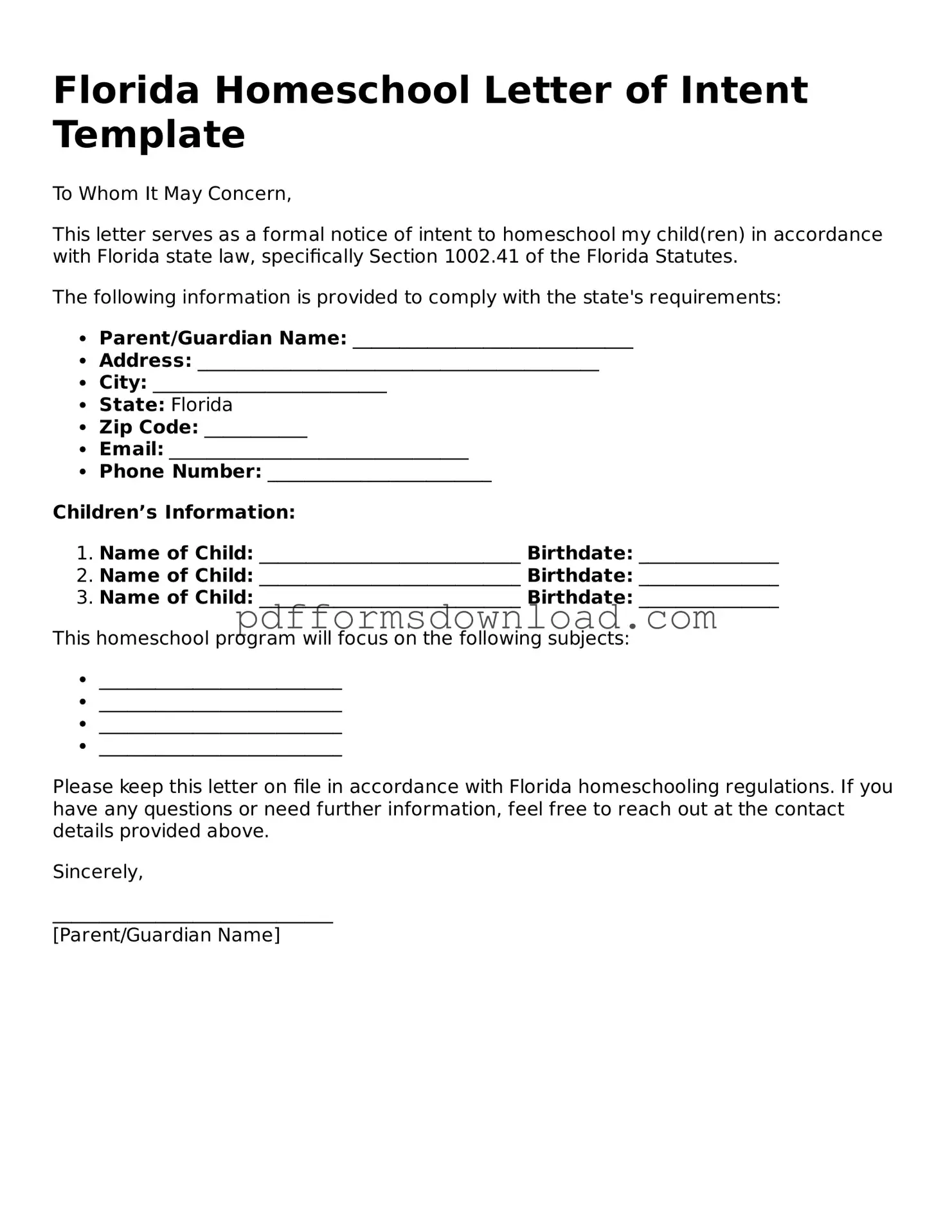Printable Florida Homeschool Letter of Intent Form
The Florida Homeschool Letter of Intent form is a crucial document that parents must submit to officially declare their intention to homeschool their children. This form notifies the local school district of the family's choice to educate their child outside of the traditional school system. If you're ready to start your homeschooling journey, fill out the form by clicking the button below.
Make This Document Now

Printable Florida Homeschool Letter of Intent Form
Make This Document Now

Make This Document Now
or
Free PDF File
Your form is almost ready
Complete your Homeschool Letter of Intent online — edit, save, and download easily.